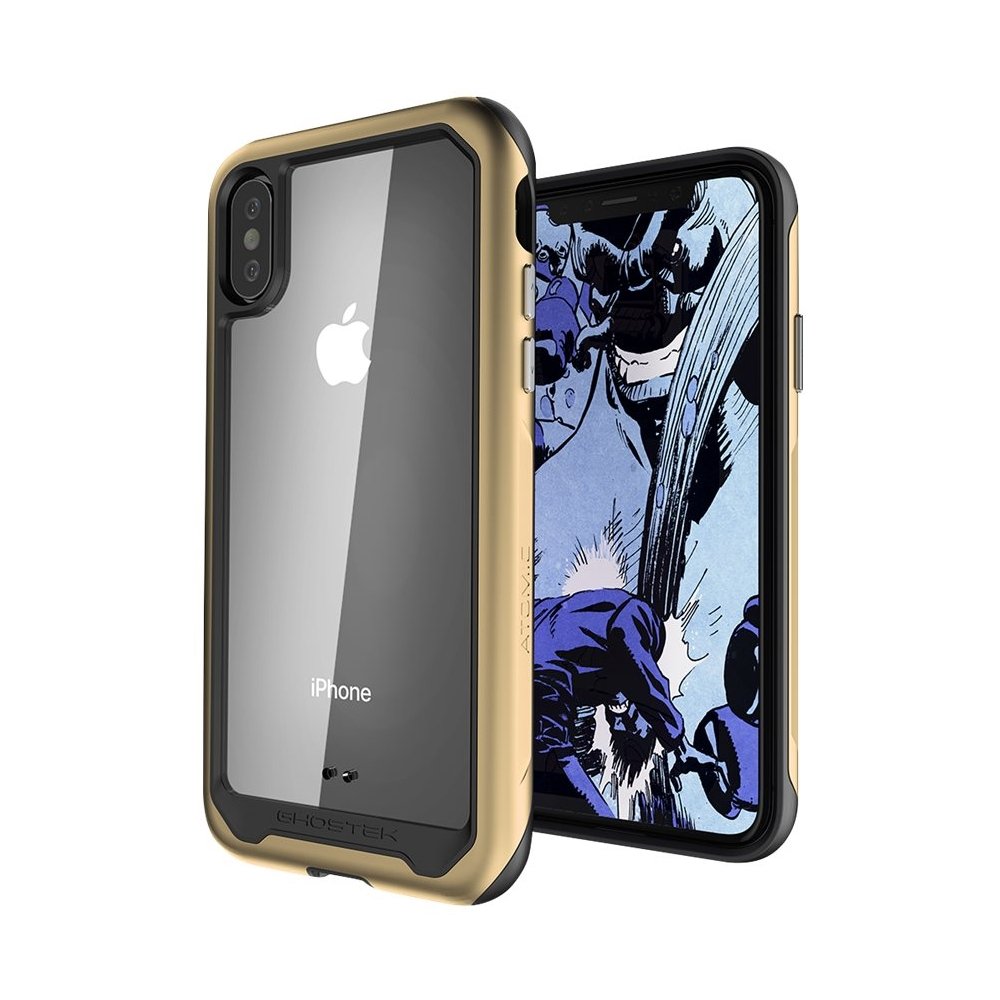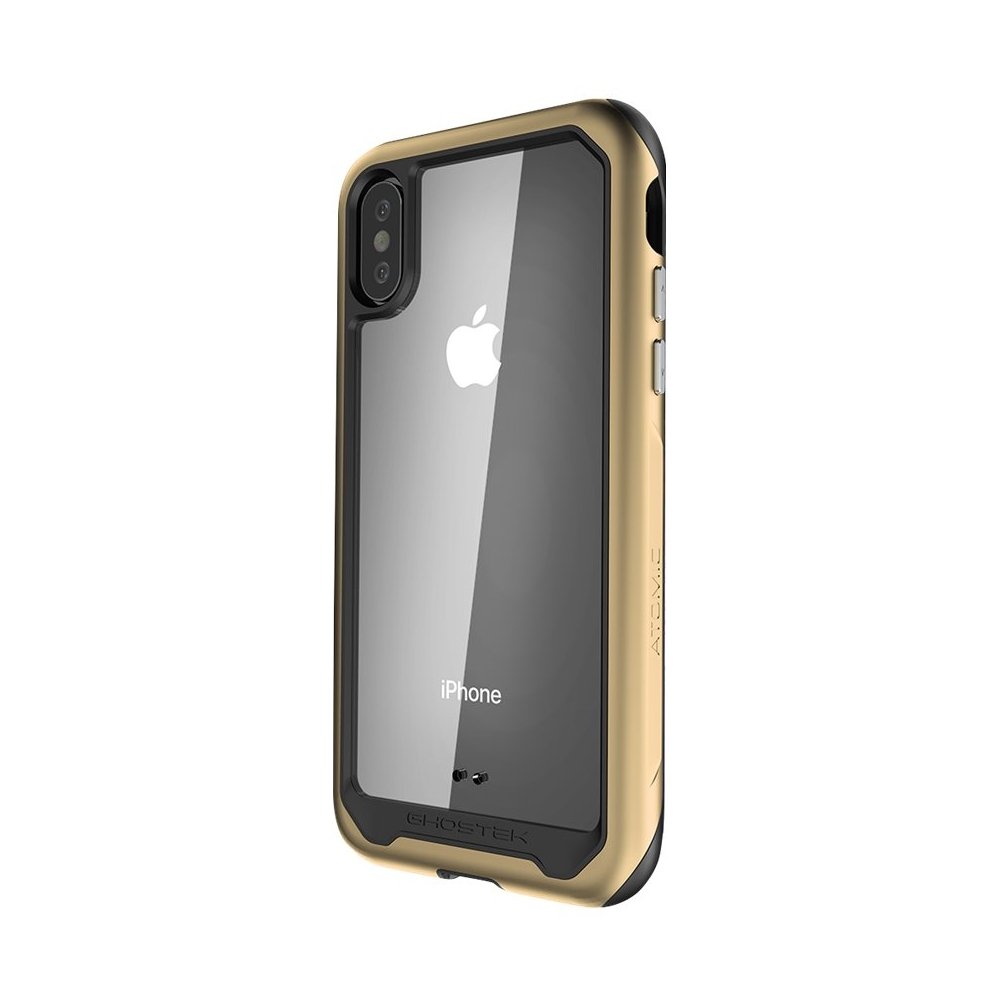
 |
 |
 |
 |
 |






atomic slim 2 case for apple iphone xs - transparent/gold
SKU: EN-A10075


atomic slim 2 case for apple iphone xs - transparent/gold
Any company that makes a device that connects to a mobile network has to pay Qualcomm a licensing fee, even if it doesn't use Qualcomm chips. That's because other chipmakers and the handset vendors themselves are using Qualcomm intellectual property. Part of the dispute between Apple and Qualcomm is that Apple believes its licensing fee should be based on the Qualcomm chip used in the device, not the entire phone. "They do some really great work around standards-essential patents, but it's one small part of what an iPhone is," Apple CEO Tim Cook said in May. "It has nothing do with the display or the Touch ID or a gazillion other innovations that Apple has done. And so we don't think that's right, and so we're taking a principled stand on it."So what's Qualcomm's licensing fee?.
Qualcomm CEO Steve Mollenkopf has said that while the value of Qualcomm's patents has "tangibly and meaningfully increased over time," the company has never raised its royalty rates, "Apple's complaint contains a lot of assertions, but in the end, this atomic slim 2 case for apple iphone xs - transparent/gold is a commercial dispute over the price of intellectual property," Mollenkopf said during Qualcomm's quarterly earnings report in January, "They want to pay less for the fair value that Qualcomm has established in the marketplace for our technology, even though Apple has generated billions in profits from using that technology."Who licenses Qualcomm's technology?..
Qualcomm licenses its technology to more than 340 companies, particularly phone vendors. It doesn't license its patents to chipmakers, though, which is something governments and Apple have taken issue with. Chip companies are able to use Qualcomm's technology without paying licensing fees since the handset makers cover those costs. In the case of Apple, it licenses Qualcomm's technology through its manufacturers, like Foxconn, instead of having a license of its own. Apple says it's been trying for five years to negotiate a direct license with Qualcomm but says the terms offered weren't fair.
In April, Apple said it stopped paying Qualcomm royalties for devices sold during the March quarter, Qualcomm accused the manufacturers of breach of contract and asked a court to make them pay up until the legal battles atomic slim 2 case for apple iphone xs - transparent/gold are resolved, Qualcomm says the licensing fees Apple and its manufacturers are withholding amount to billions of dollars, Apple says it has been overpaying for Qualcomm's patents and has stopped payments until the legal dispute is resolved, Does Intel factor into this?, When Apple first launched the iPhone a decade ago, it used modems from Infineon, It continued to use the German company's technology for the next three years until switching to Qualcomm in 2011..
Intel bought Infineon in 2011, but its chips didn't appear in the iPhone again until last year's iPhone 7 and 7 Plus. US models running on networks from AT&T and T-Mobile use Intel processors, while Verizon and Sprint versions use Qualcomm. It's the Intel-based iPhones that Qualcomm is trying to get banned from sale in the US. What other legal issues are facing Qualcomm?. Qualcomm has come under a lot of scrutiny in recent years for alleged monopolistic practices. Two years ago, it paid China nearly $1 billion to end a 14-month antitrust investigation in that country. Then, in December, South Korea hit Qualcomm with a $850 million fine following a three-year investigation. The South Korean Fair Trade Commission accused the chipset maker of having an "unfair business model" and creating a monopoly with its practices.
- best iphone xr cases online - silicone case
- iphone x case with glass screen protector - olixar sentinel
- protect grip case for apple iphone xr - black/crystal
- iphone 6/6s sheer glam case
- lovecases statement iphone x case - i heart naps but i stay woke
- space surfing iphone case
- music dance monogram frames in svg, dxf, png, music monogram svg, dance monogram svg, ballet shoes monogram, dj monogram, music
- vintage ballet shoe patent print - ballerina slipper wall art poster- ballet dancer gift printable art - single print #427 -inst
- ballerina and ballet shoe, monogram frame in svg, dxf, png, eps format. instant download for cricut and silhouette studio
- leopard ballet flats for disney animators 16" dolls rockabilly
- ballet pointe shoe fine art print
- More...


